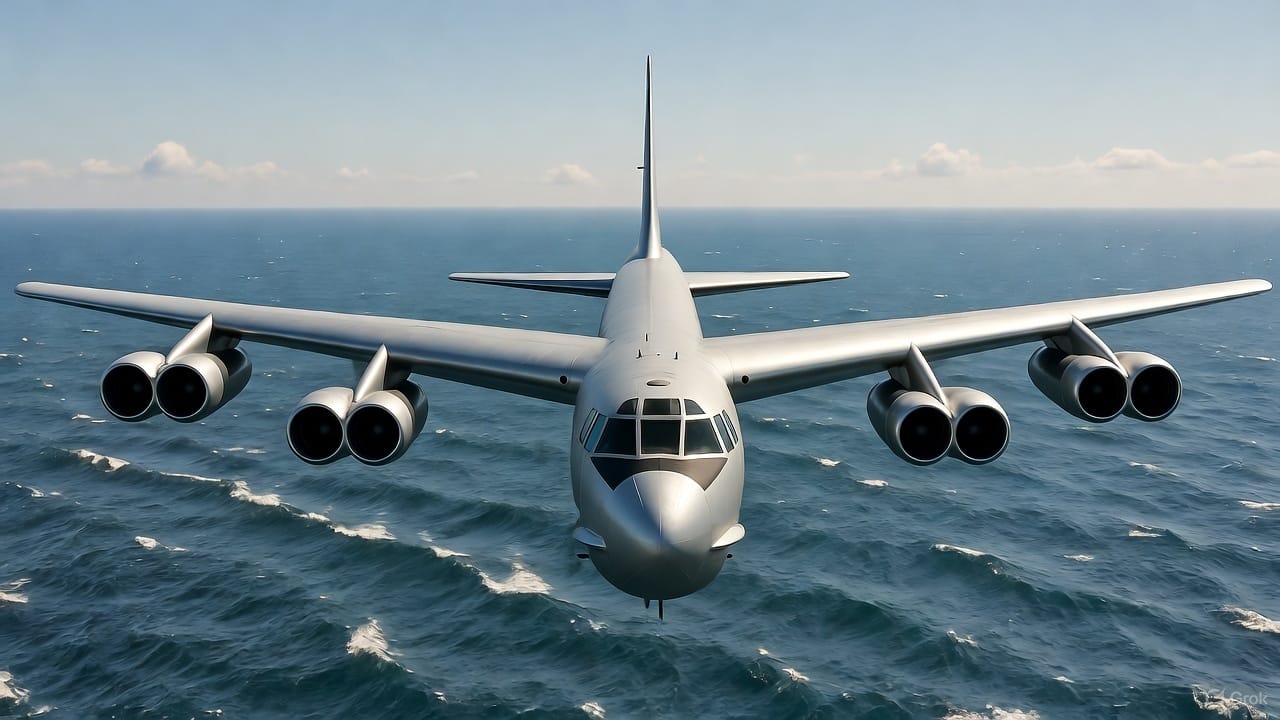- Shortlysts
- Posts
- U.S. Flexes Military Muscle as Tensions Continue to Rise with Venezuela
U.S. Flexes Military Muscle as Tensions Continue to Rise with Venezuela
U.S. military flexes muscle in the southern Caribbean as tensions with Venezuela continue to rise.

What Happened?
American military forces conducted a show of force off the coast of Venezuela, including flybys by several B-52 bombers and sailing warships in the area. The flexing of military muscle comes on the heels of the Trump Administration’s announcement that covert CIA operations in Venezuela have been authorized, though no specifics were made public. In total, the amount of American military personnel in the region has grown to nearly 10,000, which includes Marines and Navy crewmembers.
Venezuela’s President Nicolas Maduro remained defiant, issuing a press release saying, ‘there will be no regime change.’
Why it Matters
The show of force near Venezuela, in tandem with the announcement of possible covert operations, indicates the Trump Administration is seeking to increase the pressure on the regime of Venezuelan President Maduro. Recent U.S. military strikes on at least five alleged drug vessels in the Caribbean are also part of a more aggressive strategy towards narcotrafficking and the current government of Venezuela.
While President Trump has not specifically called for regime change in Venezuela, the actions taken in recent weeks suggest the goal is to oust President Maduro. There is significant evidence that Mr. Maduro and high-ranking members of his regime are directly involved in trafficking illegal drugs to the United States, in addition to providing Iran with new production facilities for Iranian attack drones. The RAND Corporation, a prominent defense think tank, issued a scathing report linking Venezuelan officials to several terrorist groups and drug trafficking organizations.
If the U.S. were to force Mr. Maduro from the Presidency of Venezuela, the big question is what comes next. Regime change is fraught with uncertainty, and it remains unclear if toppling the Maduro regime would make things better or worse for Venezuela and its neighbors. Venezuela has long suffered from corruption and incompetent governments, and the Maduro regime is just the latest in a long line of ever-worsening regimes.
There is more at stake in Venezuela than just corruption and narcotrafficking. Venezuela also has considerable oil resources, placing it in the top ten countries in the world for total proven oil reserves. Who will control those resources if the current government falls is a major unknown, and it is likely that if the Maduro regime did fall, fighting over control of oil resources could erupt in Venezuela, causing insecurity and instability there to get even worse.
How it Affects You
The U.S. has faced problems like this before, where a clearly corrupt and dangerous regime exists, but removing it from power by force doesn’t solve the underlying problems that brought it into being in the first place and can even create new threats. A key factor in Venezuela is that Mr. Maduro is not a popular leader, and he could be overthrown from within, which would likely result in a different dynamic than being toppled by external military force.